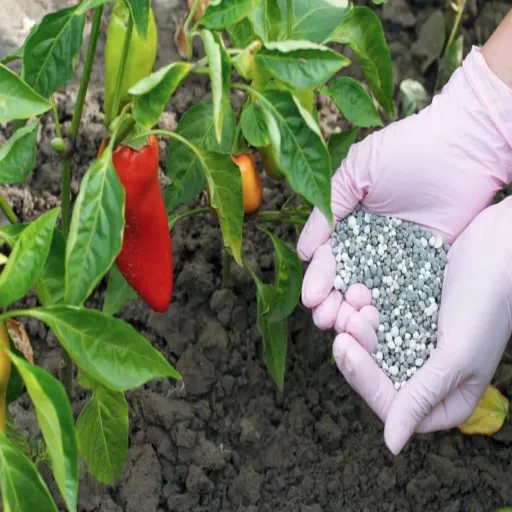Starting healthy tomatoes and peppers in 2025 requires a firm foundation built on the right organic fertilizers. Whether you’re a novice gardener or a seasoned expert, the right fertilizer can make all the difference in plant health and productivity. With growing emphasis on sustainability and eco-conscious lifestyles, organic fertilizers are becoming the preferred choice for gardeners who want to nurture their crops while caring for Mother Nature. This comprehensive guide will walk you through the best organic fertilizers for tomatoes and peppers, helping you select options that promote growth and flavor while aligning with your green gardening philosophy.
Why Organic Fertilizers Matter
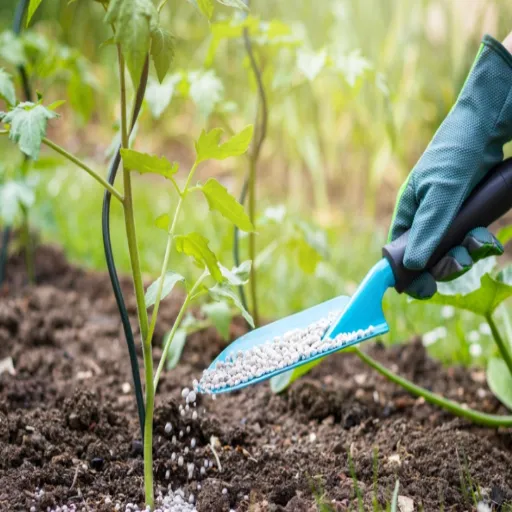
Benefits for Soil Health
- Enhanced Nutrients: Organic fertilizers provide essential nutrients like nitrogen, phosphorus, and potassium for sustained plant growth
- Improved Soil Structure: Organic matter incorporation improves soil aeration and water retention, creating better growing conditions
- Microbial Activity: Encourages beneficial microorganisms that break down organic matter and create nutrient cycling
- Erosion Control: Helps reduce soil erosion by improving water infiltration and conserving organic matter
- pH Balance: Many organic fertilizers help maintain optimal soil pH levels for nutrient absorption
Supporting Sustainable Gardening Practices
Sustainable gardening focuses on minimizing environmental impact while protecting plants, soil, and ecosystems. Key practices include:
- Organic Fertilization: Using natural nutrient sources like compost and manure
- Natural Pest Control: Implementing beneficial insects and companion planting
- Water Management: Utilizing mulching, rainwater harvesting, and drip irrigation
- Biodiversity Conservation: Creating balanced garden ecosystems
Environmental Impact of Organic Fertilizers
Organic fertilizers provide significant environmental advantages over synthetic alternatives:
- Slow nutrient release prevents water pollution from runoff
- Enhanced long-term soil health and carbon sequestration
- Reduced dependence on fossil fuels used in synthetic fertilizer production
- Promotion of biodiversity and ecological balance
Top Organic Fertilizers for Tomatoes and Peppers
Best Organic Options for Tomato Plants
| Fertilizer Type | Primary Benefits | Key Nutrients | Application Method |
|---|---|---|---|
| Compost | Improves soil structure, supports microorganisms | Balanced N-P-K, micronutrients | Mix into the soil or top-dress |
| Bone Meal | Prevents blossom-end rot, root development | Phosphorus, Calcium | Apply at planting time |
| Fish Emulsion | Quick nitrogen boost for early growth | High Nitrogen | Dilute and apply as a liquid |
| Seaweed Extract | Disease resistance, overall plant health | Potassium, trace minerals | Foliar spray or soil drench |
| Composted Manure | Slow-release nutrition, soil improvement | Nitrogen, organic matter | Work into the soil before planting |
Fertilizers for Peppers: What Works Best
Pepper plants thrive with balanced or slightly higher phosphorus and potassium fertilizers. Recommended ratios include:
- 5-10-10: Good for general pepper cultivation
- 10-10-10: Balanced option for most soil types
- 8-16-16: Higher P-K ratio for flowering and fruiting
Key Application Timing for Peppers:
- At transplanting for root establishment
- During flowering for fruit development
- Mid-season for sustained growth
Comparative Analysis of Organic Fertilizers
| Aspect | Animal-Based | Plant-Based | Blended | Miscellaneous |
|---|---|---|---|---|
| Productivity | High | Moderate | Moderate | Low |
| Crop Quality | Moderate | High | High | Low |
| Soil Benefits | Moderate | High | High | Moderate |
| Nutrient Speed | Fast | Slow | Balanced | Variable |
| Eco-Friendliness | Moderate | High | High | Moderate |
Application Techniques for Optimal Growth
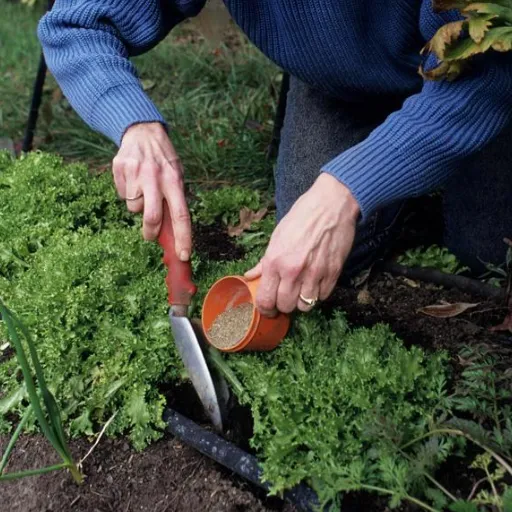
Timing and Dosage Recommendations
Proper timing and dosage are crucial for fertilizer effectiveness:
- Early Growth: Focus on nitrogen for leafy development
- Flowering: Increase phosphorus and potassium
- Fruiting: Maintain balanced nutrition with emphasis on potassium
Methods for Applying Organic Fertilizers
| Method | Description | Best For | Advantages |
|---|---|---|---|
| Broadcasting | Spread evenly over the soil surface | Large areas, cover crops | Quick application, uniform distribution |
| Band Placement | Apply in narrow strips near plant rows | Row crops, vegetables | Efficient nutrient use, targeted feeding |
| Top Dressing | Apply around established plants | Perennials, established crops | Easy application, no root disturbance |
| Side Dressing | Apply in trenches beside plants | Heavy feeders during growth | Targeted nutrition at critical stages |
| Fertigation | Apply through the irrigation system | Large-scale operations | Precise control, water efficiency |
Using Epsom Salt for Nutrient Boost
Epsom salt (magnesium sulfate) provides essential magnesium and sulfur:
- Magnesium: Critical for photosynthesis and chlorophyll formation
- Sulfur: Required for protein synthesis and enzyme activation
- Application: 1 tablespoon per gallon of water for foliar spray
- Best Crops: Tomatoes, peppers, and roses benefit most
Common Mistakes to Avoid
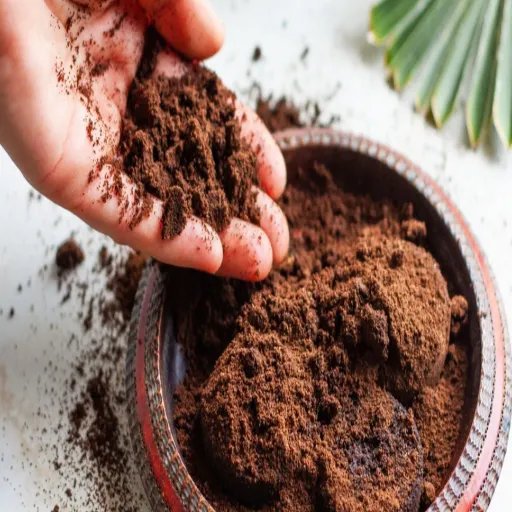
Over-Fertilization Issues
- Causes nutrient imbalances in soil
- Interferes with the absorption of calcium and potassium
- Can stunt root development
- Prevention: Follow recommended dosages and conduct regular soil tests
Neglecting Soil Testing
Regular soil testing is essential for:
- Identifying specific nutrient deficiencies
- Determining optimal pH levels
- Preventing over-application of fertilizers
- Making informed decisions about soil amendments
Ignoring Plant Growth Stages
Different growth stages require specific nutrients:
- Germination to Seedling: Low nitrogen, moderate phosphorus
- Vegetative Growth: Higher nitrogen for leaf development
- Flowering: Increased phosphorus and potassium
- Fruiting: Emphasis on potassium for fruit quality
- Maturity: Reduced nitrogen to focus energy on harvest
Latest NPK Recommendations for 2025
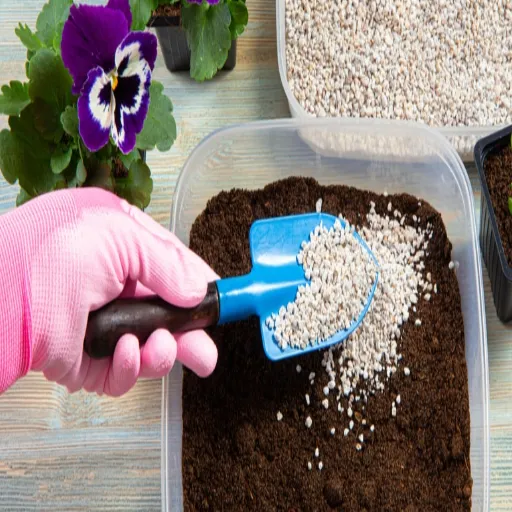
Understanding NPK Ratios for Tomatoes and Peppers
| Crop | Early Season | Flowering | Fruiting | Key Considerations |
|---|---|---|---|---|
| Tomatoes | 5-10-10 | 10-20-20 | 5-10-15 | Moderate nitrogen, ample P-K |
| Peppers | 5-10-10 | 8-16-16 | 5-10-20 | Balanced nutrition, avoid excess N |
Adjusting Fertilizer for Different Growth Stages
- Seedling Stage: Balanced fertilizer (10-10-10) for root and early growth
- Vegetative Stage: High nitrogen (20-10-10) for vigorous green growth
- Flowering Stage: Higher phosphorus (10-20-10) for bud formation
- Fruiting Stage: Increased potassium (10-10-20) for fruit development
- Maturity Stage: Reduced nitrogen to focus energy on fruit quality
Frequently Asked Questions
References
- Texas A&M AgriLife Extension Service – Fertilizing a Garden: Comprehensive source on fertilizer types and applications, including organic options
- Oregon State University Extension Service – Choosing the Right Fertilizer for Your Garden: Information on plant and animal-based organic fertilizers and their benefits
- North Carolina State University Extension – Growing Tomatoes in the Home Garden: Specific recommendations for fertilizing tomatoes using organic methods
- Nevada State Library – Fertilizing Your Vegetable Garden: Detailed explanation of nutrient contents and benefits of natural organic fertilizers
- PubMed Central (PMC) – Vermicompost Improves Tomato Yield and Quality: Scientific research on vermicompost as an organic fertilizer for tomatoes



